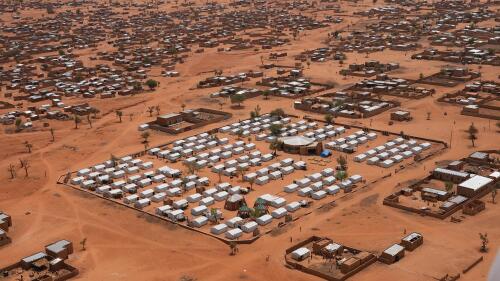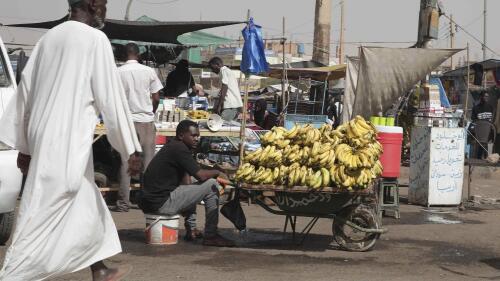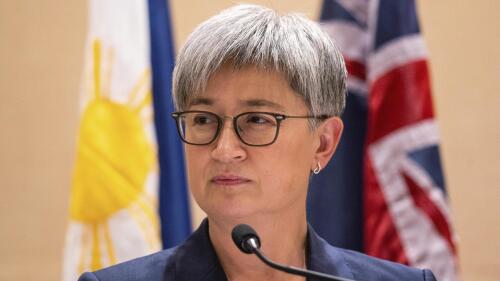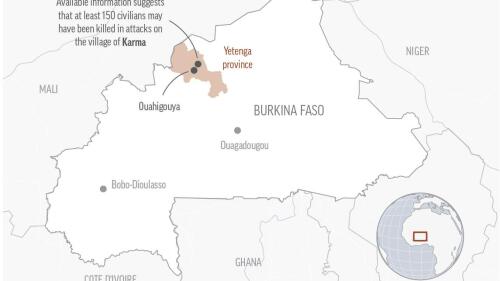Burkina Faso’s military accused of killings, torture in latest Human Rights Watch report
DAKAR, Senegal (AP) – A spate of extrajudicial killings, enforced disappearances and instances of torture by Burkina Faso’s military have terrorized communities in the country’s northeast this year, according to a Human Rights Watch report released Thursday.
The violence erupted across Séno province between February and May. The report identifies at least 27 people who were either summarily executed or disappeared and then killed, most of them from the Fulani ethnic group.
Jihadists linked to al-Qaeda and the Islamic State group have been leading a violent insurgency in Burkina Faso for the past seven years. The violence has killed thousands and divided the country, leading to two coups last year.

Violence linked to al-Qaeda and the Islamic State group has turned Burkina Faso into a country with one of the fastest growing numbers of internally displaced persons in the world.

Two UN agencies are warning of increasing food emergencies, including famines in Sudan due to the outbreak of war and in Haiti, Burkina Faso and Mali due to restricted movement of people and goods.

An 88-year-old Australian doctor who was held captive by Islamic extremists in West Africa for more than seven years has been released.

At least 150 civilians may have been killed and many more injured in the violence in northern Burkina Faso, according to the United Nations.
The New York-based watchdog’s report comes in the wake of a massacre in April in which security forces said local residents were involved at least 150 civilians killed in Karma, a village in the north near the border with Mali.
A Burkina Faso government spokesman did not respond to a request for comment on the report.
According to one report, ten men, all of Fulani ethnicity, were dragged in the back of trucks in the village of Gangaol, chased away and shot at.
“The soldiers shot and I ran away. I saw the others fall to the ground, but I kept running,” the HRW report quoted a survivor of the incident as saying. Only four of the men survived, two of them suffered life-threatening injuries.
“In the cases we documented, most of the victims of these crimes were from the Fulani ethnic group,” said Ilaria Allegrozzi, senior area researcher at Human Rights Watch.
Accused of collaborating with Islamic extremists, the Fulani people of Burkina Faso and Mali are often targeted by security forces and others.
“The only reason is hate,” said the father of a teenager who was shot dead by suspected government forces, according to the report.
The rise in violence comes as the country’s government recently pledged to double the number of its volunteer military support units, known as VDPs, to 100,000.
“The recruitment of VDPs has been accompanied by an increase in abuses on both sides,” Allegrozzi said.
Just as Burkinabe soldiers attack villages suspected of harboring extremist elements, the presence of army recruiters in a community in Burkina Faso often leads to violent intimidation by armed groups.
“I think it’s also important to recognize that they’re fighting a legitimate war,” Allegrozzi said, referring to the armed forces. According to a government press release, 34 military personnel were killed in an ambush by suspected extremist fighters on Monday.
“What we question is the way this fight is being conducted, which does not meet human rights standards and does not take into account the protection of civilians,” she said.
The targeted action against civilians is unnecessary, inhuman and ultimately counterproductive, the report goes on to say.
“Executions and enforced disappearances by the Burkina Faso army are not only war crimes, they also fuel resentment among target populations that drive recruitment into armed groups,” wrote Carine Kaneza Nantulya, deputy Africa director at Human Rights Watch, in Thursday’s report .
“Burkina Faso should ensure that the provost marshals responsible for discipline in the armed forces and the rights of detainees are present at all military operations,” the report stressed, adding that the transitional authorities should work with the UN Human Rights Office to to hold criminals accountable within its military ranks.